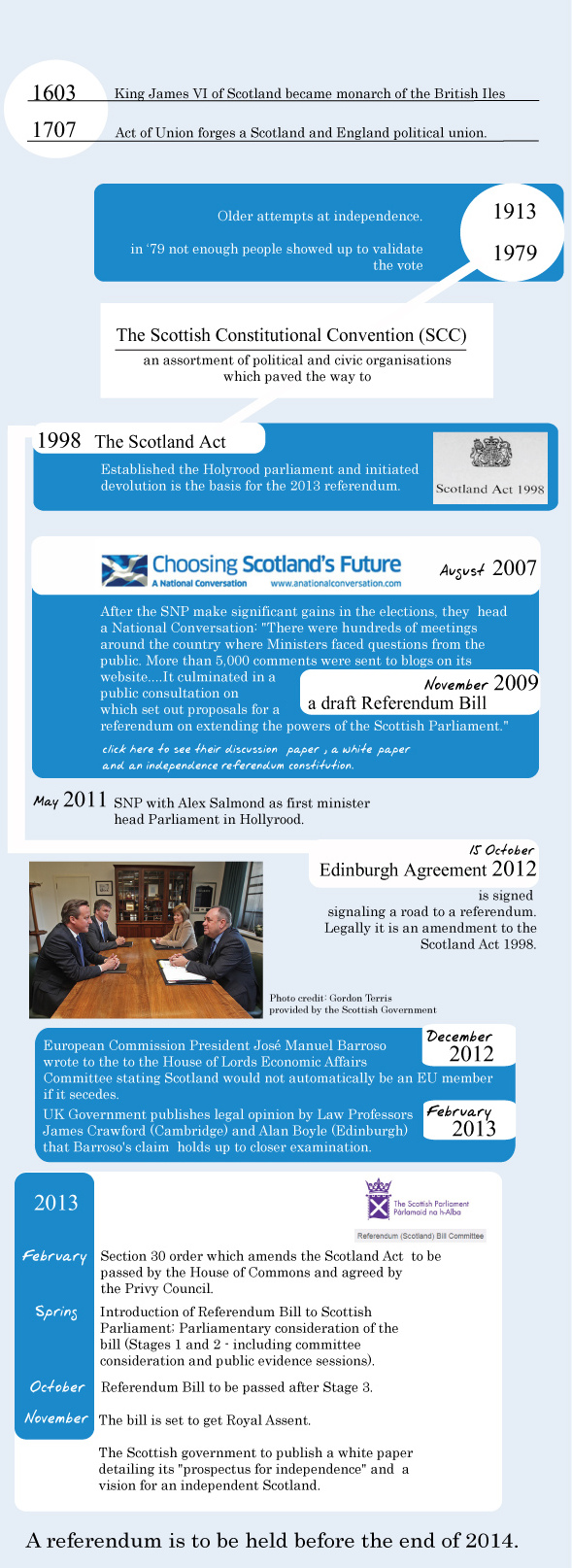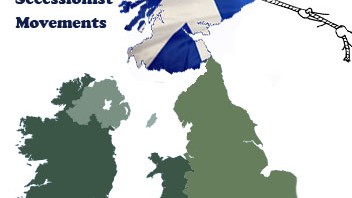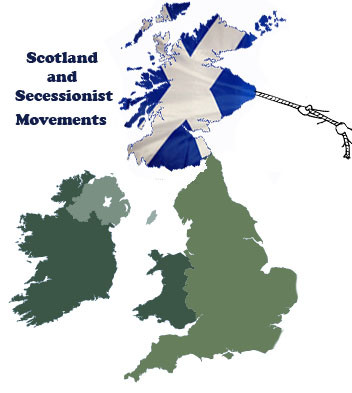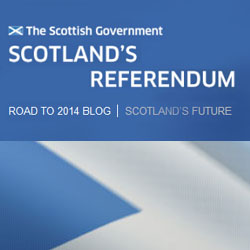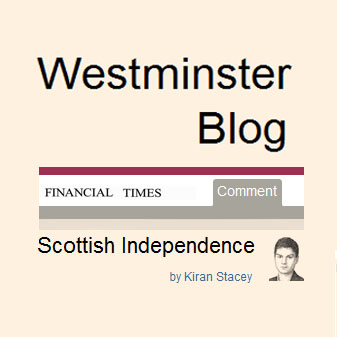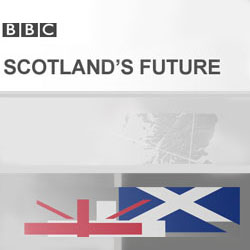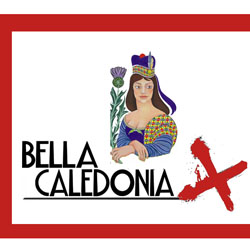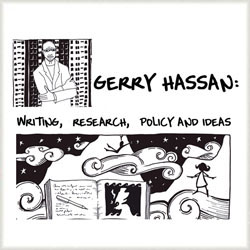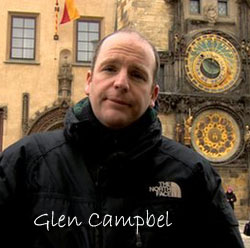As part of our current series on Scotland and secessionist movements, Professor David McCrone and I met to discuss Scotland’s future in its capital, Edinburgh. 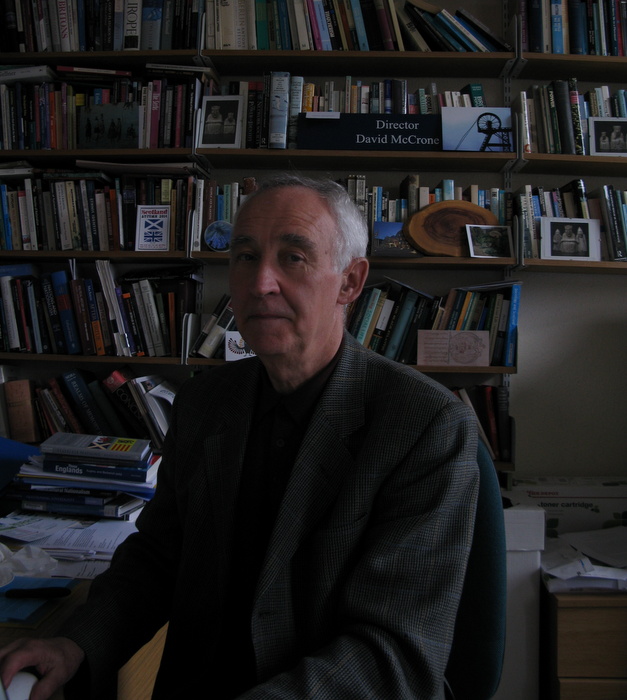 He was one of the founding directors of the Institute of Governance at Edinburgh University and has been working on Scottish affairs for many decades. We shared our frustration at working with politicians and their carefully crafted discourses and discussed the shifting parameters of the right-left divide in contemporary politics. As we delved into the referendum vote due to take place up north, Professor McCrone provided a wide–ranging discussion on the dynamics of the politics behind the event, as seen from within the Scottish public domain. Below, you can read the first part of that interview which breaks down the politics of the unfolding process, while in the upcoming part 2 of the interview you can read about his evaluation of the factors likely to influence the decision and his prediction for the Union’s future.
He was one of the founding directors of the Institute of Governance at Edinburgh University and has been working on Scottish affairs for many decades. We shared our frustration at working with politicians and their carefully crafted discourses and discussed the shifting parameters of the right-left divide in contemporary politics. As we delved into the referendum vote due to take place up north, Professor McCrone provided a wide–ranging discussion on the dynamics of the politics behind the event, as seen from within the Scottish public domain. Below, you can read the first part of that interview which breaks down the politics of the unfolding process, while in the upcoming part 2 of the interview you can read about his evaluation of the factors likely to influence the decision and his prediction for the Union’s future.
Let us start by talking a bit about how the political process of Scottish independence is going along, especially how it tries to engage the Scottish public. So, first of all, were you surprised by anything in terms of how the politicians are stacking up?
Generally, not really. However, the politics (with a small “p”) of the process are really interesting. Consider how we arrived at having a referendum. It was obvious that the Scottish National Party (SNP) is in favour of independence and a referendum. Indeed when they came to power in 2007 as a minority partner it was on their agenda to have a referendum. The Liberals could have formed a coalition with them but they refused to. They probably regretted that because in the next election they got slaughtered (albeit not because of the referendum issue) because they went into coalition with the Conservatives at Westminster. It was always likely that the SNP would come forward with the suggestion for a referendum. It is in fact the opposition parties that are quite interesting in that regard, especially Labour.
The Labour Party, which was responsible by and large for driving through devolution in the early 1990s began to call itself a Unionist party. Now, in the Scottish political domain, that is a very unusual, if not a dangerous, thing to do. Unionism, in Scotland at least, is strongly associated with right of centre conservative politics. The Conservative Party in Scotland used to be called the Unionist Party, so it is a little strange for Labour to put itself in the unionist cart. It also means that it is, I suppose, trapped by that statement. It has come to be part of the ‘no’ campaign even though many supporters of the Labour Party are in support of greater self-government.
The whole debate is in fact constrained by the simple binary divide of “yes” and “no”. There was a discussion before the agreement between the UK and Scottish governments about there being a multi-option referendum. In many respects that made more sense because it would reflect more accurately Scottish public opinion. Public opinion is not simply divided into “we are very happy with what we have thank you very much” on the one hand, and “we want independence” on the other.
From the beginning of the creation of the Scottish Government in 1999, a substantial number of people have been in favour of a more powerful parliament. Simply put, about one third of people are in favour of independence, one third don’t want any change from the present and one third want a more powerful parliament. If you simply asked for a ‘yes’ and ‘no’, where would these people who want a more powerful parliament go? They are not in favour of independence, but they are also not in favour of the status quo. If you had a multi-option referendum and you had a more complicated question – “Which of these do you prefer and what’s your second choice” – then you would have a more accurate assessment of Scottish public opinion. Scottish public opinion clearly sits in the position of staying within the union but having power over all matters apart from foreign affairs and defence.
The current debates about welfare, driven by the UK government, reinforce Scottish public opinion which is roughly summarized by: “we don’t buy into this, Scotland does it differently, we want control over welfare”. So, a binary divide is far too crude. Even if the referendum comes up with a “no”, the issues are not going to go away. Substantial numbers of people are in favour of a more powerful parliament with regard to all taxation powers and all elements of welfare. These are very big spenders. So, the referendum on independence will not be the end of any story.
As the issue is much more subtle than the binaries presented, there are a range of factors which impact on the debate. That has always been the case when it comes to Scotland’s’ relationship to the United Kingdom and its place in the union. Scotland’s attachment to the United Kingdom has been a pragmatic one. It has been part of the United Kingdom for a relatively short time (300-ish years), joining for political-economic, pragmatic reasons. Moving through the 21st century, the United Kingdom is far less powerful (having shed an empire) than it ever was before. People in Scotland continue to consider themselves as Scottish and British, but mainly Scottish, and think of Scotland as a nation. There has been a kind of inevitable shift, although nothing is inevitable in politics, of wider public opinion from “why should Scotland be independent” to “why should Scotland not be independent”. The move has also been influenced by the increasingly right wing agenda being pursued “down south” in England, including discussions about Britain’s future in the EU.
So can we focus in on this for a moment? Are you suggesting that, at the moment, Scotland is rather nationalist, but not as right-wing as the government down south? This proposes an interesting duality between nationalism and the right-wing. What can this tell us about political categories currently in existence?
It is not the case that English people are right-wing or Scottish people are left-wing. In many respects there is not that much difference in people’s political attitudes and values in England as opposed to Scotland, but the major shift (and this is a reflection of the nature of the Scottish government) is that parties of the centre-left are much more dominant in Scotland than they are in England. If you think about party competition in England, it is largely between the centre-right and centre-left. In Scotland this is not the case. We have the nationalists (the SNP) and Labour. Those are the two big players. The other parties are just small players. We also have a multi-party political arena. Thus, because of the impact of proportional representation we now have five parties: The SNP, and Labour (centre-left); the Conservatives (centre-right), Liberal-Democrats (centre) and the Greens. This is the situation in most European countries. If England introduced proportional representation they also would have multi-party politics. English public opinion is not that different. It is slightly more right-wing but not a lot; however the party competition system in England is forcing the agenda artificially because it is based on the ‘first past the post” principle, and smaller parties are squeezed out.
Nationalism is a chameleon. It can lend itself to all sorts of political persuasions: right-wing versions, centrist versions, left-wing versions. When people try and pin it down, you can’t do it. It has this chameleon capacity to take on the colouring of the environment in which it finds itself. For example, the Scottish National Party is a centre-left party. It presents itself as a social democratic party. The Labour Party seems to be shifting, but in a sense the party competition in Scotland is between two centre-left parties. This structures the debate. It is like the distinction between Nationalism (big N) and nationalism (small n); uppercase and lowercase.
Most people in Scotland are certainly lowercase nationalists. They think of themselves as Scots first. They do not necessarily deny that they are British. They are many things, but primarily, they are Scottish. The referendum will not be decided on identity. It is an issue of pragmatics. Nationalism has the capacity to act in such a fashion – just as it is impossible to define a nation because there is no marker or characteristics which are common to all forms of nationalism. It is a political ideology (with a small “p”) which assimilates itself to the surrounding environment – writers like Ernest Gellner taught us this.

The Declaration of Arbroath, 6 April 1320 – photograph from the National History Museum in Edinburgh
The people of Scotland are nationalist. Well, about one third of people are Nationalists who identify with the SNP. Even Conservative voters think of themselves as Scottish. So, you have these struggles between lower-case and upper-case nationalism and that’s true everywhere. The nationalist party seeks to appropriate national identity and to talk it up but it does not quite fit the reality of where people are at. There are many supporters of the Labour Party of Scotland who believe in greater powers for the Scottish parliament and even in independence. This makes it difficult to reduce things simply.
In other publications you have suggested that about 30% of people are likely to vote for independence. Do you think the ‘yes’ and ‘no’ campaigns can budge that? What do you think is going to be the strategy behind the campaigns?
When doing social survey analysis, the traditional way of asking the question was to say:
- are you in favour of independence
- are you in favour of devolution
- are you in favour of no Scottish parliament at all
However, a couple of years ago, Prof. John Curtice and colleagues at Scottish Centre for Social Research devised a new kind of question which asked:
- are you in favour of the Scottish government making all decisions for Scotland (which effectively is independence)
- are you in favour of the Scottish government making decisions apart from defence and foreign affairs
- are you in favour of the Scottish parliament making decision as they do now over education health and leaving all else to Westminster
- are you in favour of there being no Scottish parliament at all
When you do that and you run it against the old question, you find that there is a considerable number of people (about 30%) who want a more powerful parliament whilst remaining within the United Kingdom. The key question is then: “How are they then likely to vote?”. If they split 50-50, then there would be a strong chance of a referendum ‘yes’. There is an assessment to be made as to what that split is going to be. There is no point if you were running a pro-independence campaign in trying to appeal to those who are happy with the status quo or do not want a parliament at all. It is just a waste of time. You should put your efforts into persuading those who want a more powerful parliament.
When you ask whether the Scottish parliament should make all decisions about Scotland, our surveys indicate that approval rises to 40%. So it seems there is a considerable body of what you might call soft nationalist opinion, “independence lite” if you prefer, who are persuadable, so you work on them. A politician can work on them in two ways: by accentuating the positives, but also tackling the negatives – the fears and the worries. It means addressing how one would disaggregate responsibilities, such as shares of national debt or the currency.
The ‘no’ campaign keep promising they will either ways deliver greater devolution. People in Scotland don’t seem to trust that. All the way back to 1979 (which was the first referendum about the Scottish Assembly[1]) the Conservative Party, the unionist party, said – “vote no and we will improve how Scotland is governed” but they didn’t do that. If someone says to you: “give me your wallet and I will give you some money”, you would say “why you’re joking, it’s not possible, do you think I am stupid?”. So therefore, for politicians to come along and say “vote no and we’ll see you are all right”, people are saying “why should I trust you?”.
So, those are those issues. The people who are in favour of more devolution, the ‘devolution max people’ as they are sometimes called, are persuadable, and even if one-third of them voted yes, the chances of independence rise considerably.
Devolution max seems to have been called a label without content by some commentators.
I think people are pretty shrewd about what it stands for. A significant body of public opinion was in favour of a multi-option referendum. Some people then said “ah yes, that’s just kind of the insurance policy, the fall-back position”. Why didn’t the unionists, particularly Labour (given that two thirds of Labour supporters are in favour of a more powerful parliament) push for a multi-option referendum? I think it’s because they wanted to defeat the SNP, it’s the nature of politics.
So, the reality of public opinion is for a much wider spectrum of opinion – effectively in favour of a confederal relationship to the rest of the United Kingdom. We live in a world where powers are no longer connected simply to the State parliament, and the central government is no longer all-powerful. Some powers have gone up to the European Union level. Still, given these circumstances, the Conservative Party is effectively tearing itself apart over Europe with the rise of UKIP (United Kingdom Independence Party) and is now considering the repatriation powers back to the national parliament. Powers are shared and layered in the modern world, it is the nature of the world now. An independent Scottish parliament would not try and pretend they control everything. The Westminster government should also, however, not be under the illusion it has unilateral control.
There is nevertheless no doubt that independent states have wider powers than non-independent states, or states only with devolved responsibility. There are issues of taxation, of incoming investment and, of welfare. They are some of the fundamental things that states control – even, or in fact especially, in the modern world.
Does that mean this referendum is twisting the principle of a referendum in general? Democratic government in principle is based on representation. If a referendum is a mechanism which retracts unilateral decisions by the state on behalf of citizens and gives citizens the right to vote on issues which concern them directly, is this sort of situation unfairly withholding an option which citizens might like to select? What does this tell us about referendums?
Well, referendums are very crude mechanisms. They can always be hijacked by other issues. There are many systems for their execution. Switzerland (perhaps infamously) has a lot of them built into the constitution. Switzerland is also a multi-federal state. The other month for example, they decided there would be much more public disclosure on private banking then hitherto. So, there are political systems where referendums are much more common as part of the governance of a state. Others are far less willing to use it. In the UK there have been very few referendums. One former British prime minister, Harold Wilson said that you should never hold a referendum until you are certain about the answer, which is probably very astute if somewhat cynical. In that view, you hold a referendum almost as a legitimating device. He used it as a legitimating device to keep the UK into what the EU was then the European Economic Community (the EEC).
Given that Scottish independence is such a major constitutional matter, it is unthinkable that there should not be a referendum. Quite apart from anything else, we have had referendums on constitutional matters in Scotland before. We had one in 1997, which the Blair government decided to have, much to people’s bewilderment – especially since there had just been one in 1979, which was rigged. In ’79 the opponents of a Scottish assembly built in a stopping device that 40% of people on the electoral register had to vote ‘yes’ for it to pass. On one level this doesn’t look unreasonable but the problem with it is that if you didn’t vote or indeed you were dead you were deemed to be a ‘no’ voter. They were quite open about the fact that they used this as a device to stop devolution. Indeed in that referendum 51% of people voted ‘yes’ but it was insufficient to meet the 40% of total electoral register and therefore it worked in favour of the ‘no’ campaign. People became very cynical about manipulation of, in particular, constitutional referendums. So when Blair came up with a proposal to do it again 1997 people thought “oh wait a minute, Blair isn’t keen on this, we know that” so they thought this was probably a device to stop it. Actually, it turned out to be quite a clever device, because it then reinforced the popular will on a fairly massive scale: three-quarters of people voted ‘yes’.
So with referendums, the issue has been what form the referendum should take: what should the questions be, who should get to vote, and all sorts of side-concerns which tend to crop up. For example, there is an argument that if this affects all of the United Kingdom, everybody in the union should get to vote. Scotland is a historic part of the United Kingdom, yet there is no sense in which Scotland is a region. It has its own law, its own social systems and civil society. Therefore it should have the right to secede if it wishes with an internal referendum.
Let’s return to how the issue of the nature of the referendum question. Opponents of Scotland leaving the United Kingdom seem to be happy with a yes/no vote because it squeezes opinion, because they want a clear-cut statement. It is fair to say that a lot of nationalists would have also liked a more multi-option referendum because of the risk of a “no” to independence. If you have a more fluid referendum question, you would inevitably result in a constellation of opinion focused around having a more powerful parliament but remaining within the United Kingdom. This would force politicians to address public opinion properly. To arrive at such a scenario, you would include ‘devolution max’, the ‘status quo’ and ‘no parliament at all in the question and ask people to order their choices.
Referendums are usually assumed to be, and used as ‘once and for all device’, yet they never seem to be such. It doesn’t meant that if people voted yes in the referendum, there would have to be another one in a few years because people have changed their minds. There is always the possibility of that, however, in Quebec and elsewhere, if you have many referendums (or neverendums as they are sometimes referred to because ‘you keep on going until you get the right result’) you have these kinds of shifts. So there are some states where you have them all the time, ones where you never have them (like in Germany where they are tainted because the Nazis had them) and then there are places like the UK where you have pragmatic referendums.
If the referendum results in a ‘no’, supporters of the other options are unlikely to give up. Referendums never resolve anything, it’s a political process that creates them and that political process keeps going.
[1] As the Scottish parliament was called at the time.


